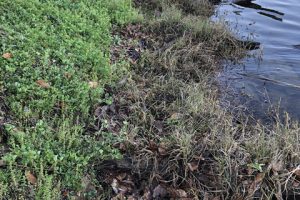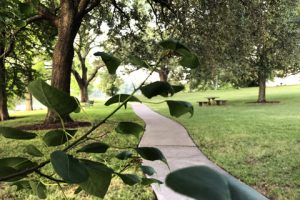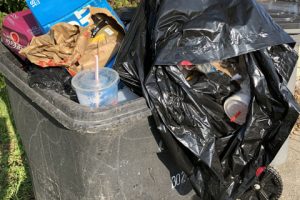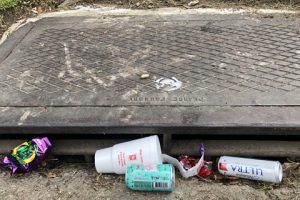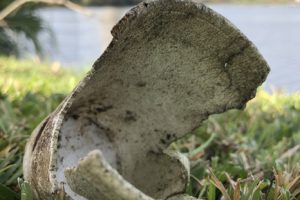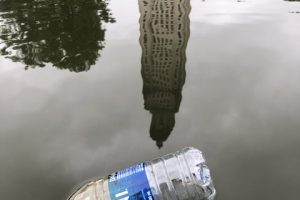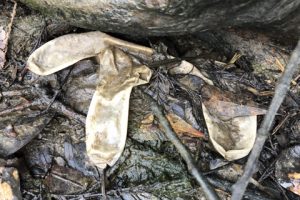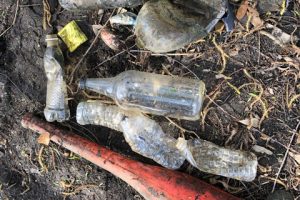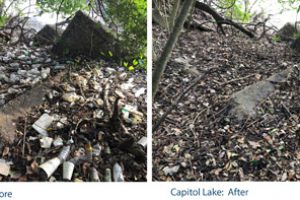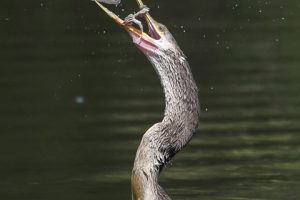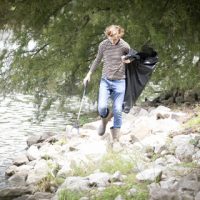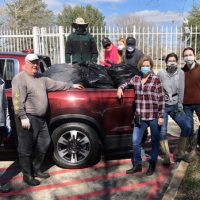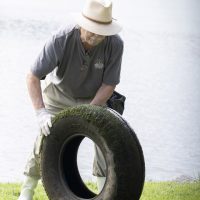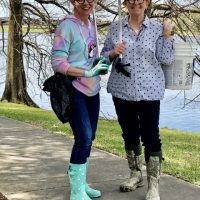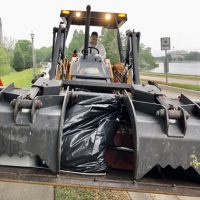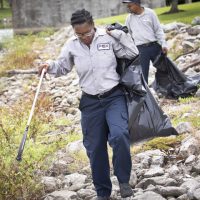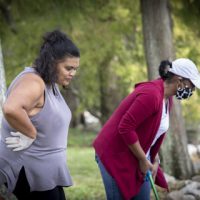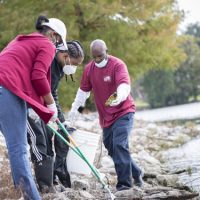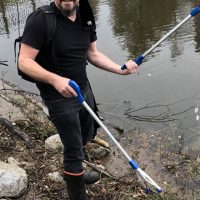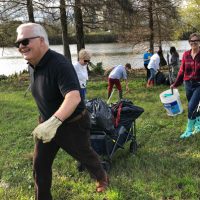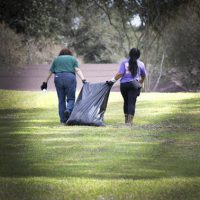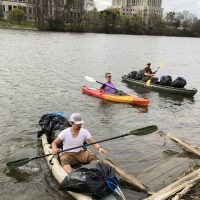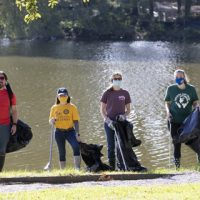CAPITOL LAKE
Some Unintended Consequences Are Wonderful By Marie Constantin
What do you do when a problem is so enormous, so widespread, and has been around for so long that the mere thought of caring anymore is not an option? The answer is easy. You do what Mother Teresa did.
She was often overwhelmed. No doubt that is why she shared with the world: “We are not called to be successful, but faithful.”
When volunteers began picking litter from the shores of Capitol Lake 15 months ago, it did not take long before they realized that 41 twenty-five-gallon bags of garbage flowed in every month from the city’s untreated storm drains, ruining their efforts. Daunting as it was, they decided not to stop but instead chose to be faithful, pick it up, and advocate for the Lake. With each passing month, their clean-up efforts sent volunteers sliding down steep banks. Mosquitos bit them. They fell onto the rocks. Snakes sent them running. Fire ants ran up their legs. They wouldn’t quit.
Swarms of gnats bit them. Some hacked their way to the litter. Their skin broke out from poison ivy, and others climbed into kayaks. They worked through the heat, the cold, the ice. They didn’t quit.
When the call is to be faithful, you don’t quit.
Because Louisiana is often number one in precipitation, this can put us number one in litter entering our watersheds when we don’t intercept it in our storm canals. Because the state can get 60- 90 inches of rain in 112 rain days, our litter may only stay on the ground a few weeks before storm drains act as freeway on-ramp systems carrying litter to the belly of the Sportsman’s Paradise or the place we drink our water from, catch our fish, hunt, kayak, swim, and hike.
Put another way, Arizona’s 12 inches per year keeps litter on the streets, forcing them to look at it or do something about it while our gets washed out of sight.
Litter-catching devices are on order thanks to BRAF and the State. Once installed, 80-90 percent of the litter is intercepted before making it into the Lake.
Volunteers picked up litter and advocated for litter grabbing equipment but also, looking for statewide solutions, they turned their sights towards Florida. Thirty years ago, the Florida legislature declared stormwater to be a utility when they passed (FSA) 403.0893. This empowered communities in that state to fund stormwater treatment programs by putting them on a utility bill if they chose to do so. Today over 160 Florida communities have chosen this route. Miami now brings in 12 million a year with an average fee of $3.30/month. States have hardship credits for the vulnerable.
There are always unintended consequences in life. Some are wonderful.
When Florida communities gave themselves money to buy the equipment that catches sediments and litter from stormwater, they also had the money for canal maintenance, infrastructure upgrades, expert training in stormwater management, and money for educating the public on the importance of bagging their trash, so it does not end up in a watershed.
Here is the best part. While Florida’s stormwater utility began as an effort to fund compliance with the Clean Water Act, they quickly learned that communities that had a fully-funded program had inadvertently reduced flooding! Recognizing this, today, these programs are now often called “Flooding and Water Quality” programs.
Because volunteers chose to be faithful when faced with the impossible, picking up 907 bags in a 15-month effort, Capitol Lake will begin to heal itself when the equipment arrives. It will serve as a demonstration model on how a fully funded stormwater program could solve problems on multiple fronts.
GALLERY
CAPITOL LAKE BEAUTY
LITTER PROBLEMS
- Loose garbage and unbagged garbage contributes to litter
- Trying to enter a watershed
- Styrofoam cups break down into tiny hard-to-pick-up pieces
- Capitol Lake
- Some litter, decades old
- Capitol Lake Before and After
DEATH BY LITTER
- Brian Boudreaux photo - Death by Litter
- Brian Boudreaux photo - Capitol Lake
- Brian Boudreaux photo - Death by Litter
VOLUNTEERS
- Steven Kendall
- Tiffany Brumfield
- One of many crews
- Mark Upton
- Liz Harris, Marie Constantin
- Krieger Barbara and Kirksey pick litter
- June Peay
- Gerard Overholtz
- Fox Pest Control sends volunteer employees
- Erin Wilder-Doomes and Erica Hives-Johnson
- Erica Hives Johnson, Alvin Miller and Guy Louis James
- Brian J Boudreaux
- Kevin Harris hauls it out
- Fran U Intensive Care Earth
- Brian Biamonte, Emily Stitch, Jonathan Harnsongkram
- Fran U Intensive Care Earth






